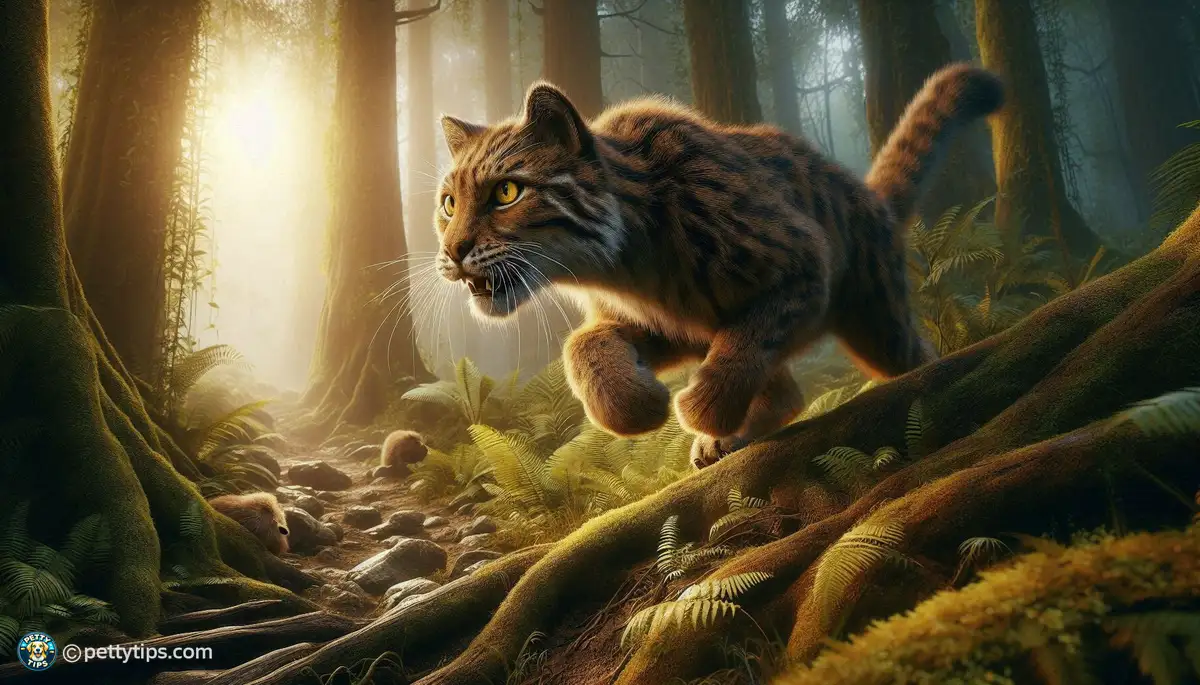- Home
- Cat Behavior
- Exploring the Evolutionary Roots of Cat Hunting Behavior
Exploring the Evolutionary Roots of Cat Hunting Behavior

The Fascinating World of Feline Behavior
The Instinctive Drive to Hunt
Cats have always intrigued humans with their innate hunting abilities. From stalking prey to pouncing with precision, their behavior is a testament to their evolutionary past. The drive to hunt is deeply ingrained in their genetic makeup, originating from their wild ancestors. Despite being domesticated, modern-day house cats still exhibit these primal instincts, albeit in a more controlled environment.
Understanding Prey Drive
The concept of prey drive encompasses a range of behaviors associated with hunting, including stalking, chasing, and capturing prey. This innate instinct is crucial for a cat's survival in the wild, allowing them to secure food and defend territory. Even though domestic cats may not rely on hunting for sustenance, their prey drive remains intact, manifesting in play and occasional hunting behavior.
The Role of Genetics
Genetics play a significant role in shaping a cat's hunting behavior. Domestic cats share a common ancestry with their wild counterparts, such as the African wildcat and European wildcat. Traits related to hunting, such as agility, coordination, and predatory instincts, are inherited through genetic variation. Breed also influences hunting behavior, with certain breeds exhibiting stronger prey drive than others.
Environmental Influences
While genetics lay the foundation for hunting behavior, environmental factors also play a crucial role in shaping a cat's hunting instincts. Early experiences and exposure to stimuli during kittenhood can have a profound impact on their development. Growing up in an enriched environment with opportunities for play and exploration can enhance hunting skills and foster a healthy outlet for natural behaviors.
The Evolutionary Origins of Cat Hunting Behavior
From Wild Hunters to Domestic Companions
The evolutionary history of cats dates back millions of years, with their ancestors adapting to various environments and prey species. Wildcats, the predecessors of domestic cats, evolved specialized hunting strategies to survive in diverse habitats. Over time, humans domesticated cats, leading to changes in their behavior and lifestyle. Despite the transition from wild hunters to domestic companions, cats retain many of their ancestral hunting instincts.
Hunting Strategies in the Wild
Wildcats employ a range of hunting strategies tailored to their prey and environment. Stealth and patience are essential tactics for stalking elusive prey, while speed and agility are crucial for capturing fast-moving targets. Cats also rely on their keen senses, particularly vision and hearing, to locate and track prey. These innate hunting abilities have been refined through millions of years of evolution, allowing wildcats to thrive in their natural habitats.
Domestication and Behavioral Changes
The process of domestication has influenced various aspects of cat behavior, including hunting. As cats transitioned from wild to domesticated animals, their hunting instincts adapted to new environments and lifestyles. While some behaviors remain unchanged, such as stalking and pouncing, others have been modified or suppressed through selective breeding and socialization. Domestic cats may exhibit hunting behavior for recreational purposes rather than necessity, reflecting their evolved relationship with humans.
The Adaptive Advantage of Hunting Behavior
Hunting behavior confers several adaptive advantages for cats, both in the wild and domestic settings. Beyond securing food, hunting provides mental and physical stimulation, preventing boredom and obesity. For outdoor cats, hunting also serves as a means of pest control, helping to regulate local wildlife populations. Additionally, engaging in hunting-like activities satisfies their natural instincts and promotes overall well-being.
Nurturing Natural Behaviors in Domestic Cats
Enriching the Indoor Environment
Creating an enriching indoor environment is essential for satisfying a cat's natural hunting instincts. interactive toys, puzzle feeders, and climbing structures can mimic hunting scenarios and provide mental stimulation. Rotating toys regularly and introducing new stimuli can prevent boredom and encourage physical activity. Providing opportunities for play and exploration helps fulfill a cat's innate need for stimulation and engagement.
Interactive Play and Bonding
Engaging in interactive play sessions not only satisfies a cat's hunting instincts but also strengthens the bond between cats and their human companions. Using wand toys, laser pointers, or interactive puzzles can simulate hunting behavior and encourage physical activity. These play sessions offer opportunities for socialization and mental stimulation, promoting a harmonious relationship between cats and their owners.
Outdoor Exploration with Supervision
For indoor cats, supervised outdoor exploration can offer a taste of the natural world while ensuring their safety. harness training allows cats to experience the outdoors under controlled conditions, providing opportunities for sensory enrichment and physical exercise. However, it's essential to supervise outdoor excursions closely and be mindful of potential hazards, such as traffic and other animals. Creating a secure outdoor enclosure or "catio" can offer a safe and stimulating environment for outdoor exploration.
Providing Alternative Outlets
In multi-cat households, providing alternative outlets for hunting behavior can prevent conflicts and promote social harmony. Interactive feeding puzzles or foraging toys encourage cats to "hunt" for their meals, stimulating their natural instincts while reducing competition over resources. Additionally, offering vertical space, such as cat trees or shelves, allows cats to engage in territorial behaviors and maintain a sense of control in their environment.
Conclusion: Embracing the Hunter Within
Understanding the evolutionary roots of cat hunting behavior provides valuable insights into the complex relationship between cats and their natural instincts. While domestication has influenced their behavior, cats retain many of the primal traits that define them as skilled hunters. By nurturing their natural behaviors through enrichment and engagement, we can ensure that our feline companions lead fulfilling lives that honor their evolutionary heritage. So, let's embrace the hunter within our cats and celebrate the remarkable creatures they are.
